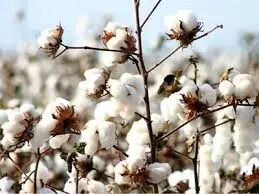KARACHI: An inordinate delay in the implementation of the government’s decision regarding the merger of the Pakistan Central Cotton Committee (PCCC) and the Pakistan Agricultural Research Council (PARC) has raised serious concerns over cotton production and the national research framework, experts told Business Recorder.
Under the decision of the federal cabinet and the establishment division, the merger was notified on January 1, 2025, and was to be completed by June 30, 2025.
Cotton production: extreme weather could mean lowest yield in history of Pakistan
However, due to reasons that are unclear – some put it down to bureaucratic inertia – the implementation process has stalled. Although legal amendments and structural preparations are complete, the issuance of the executive order (notification) remains pending.
According to agricultural policy experts, this merger is not merely an administrative step, but a crucial advancement towards establishing an integrated national research system in the country. Such a system would prevent duplication of research resources and accelerate innovation and development in cotton – already under threat due to extreme weather – as well as other major crops.
On August 8, 2025, Deputy Prime Minister Ishaq Dar, in a high-level meeting, stressed the immediate issuance of the executive order. However, the continued absence of concrete action has reinforced the perception that bureaucratic inefficiency and sluggish decision-making are obstructing national agricultural development goals.
Cotton, which serves as the backbone of Pakistan’s exports and textile value chain, is already facing severe financial and research challenges. Since 2016, the PCCC has been in crisis due to the non-payment of cotton cess by textile mills. In this situation, the delay in the merger has further paralyzed research activities.
Dr Yusuf Zafar, former Vice President, PCCC – which comes under the Ministry of National Food Security & Research – said: “The federal government should swiftly and smoothly merge PCCC with PARC as almost all the administrative, legal and financial matters have been resolved and only a final cabinet approval will amicably resolve the issue in a permanent way.”
Policy circles view this deadlock in the broader context of the national economy and institutional reforms. They warn that unless the executive order is issued promptly, not only will cotton production continue to decline, but the very structure of agricultural science in the country will also suffer, with direct repercussions for textile exports and the livelihoods of farmers.
Progressive farmers and experts emphasize that the government must treat this issue as an agricultural emergency and eliminate delays in decision-making. This will stabilize research institutions and secure the future of cotton as well as other vital crops.
They believe that by strengthening research and development in cotton, the merger will accelerate progress in developing new varieties of cotton, combating diseases and enhancing technology transfer.
Opinion: Why merging PCCC and PARC matters
The merger is not merely an administrative measure, it is a strategic step for national agricultural advancement and the revival of cotton, any further delay could inflict irreparable losses and it is therefore imperative for the government to issue the notification without delay to ensure sustainable progress in cotton and other crops.


